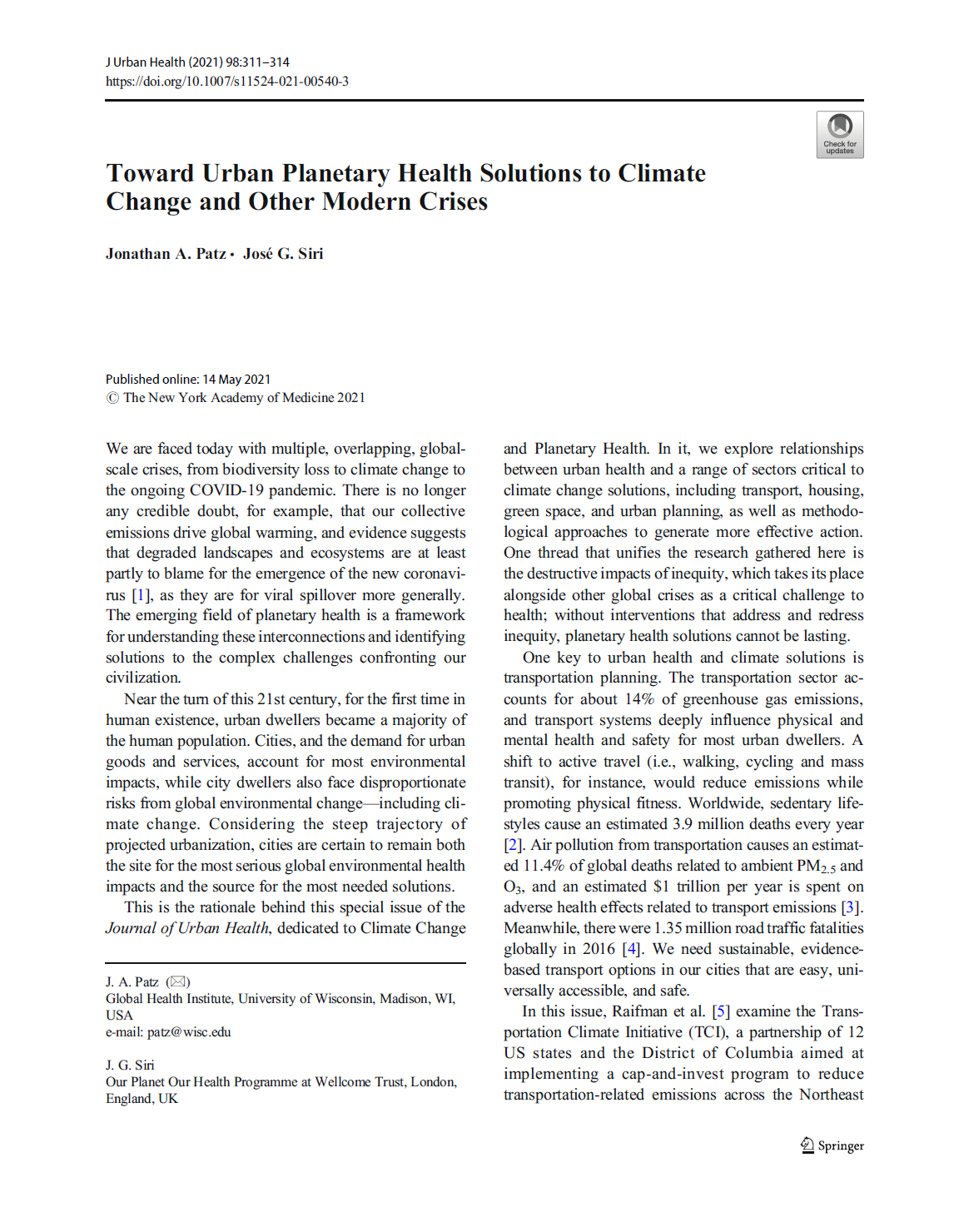Planetary Health
Planetary health is the health of human civilization and the state of the natural systems on which it depends. This emerging field recognizes that human health is intertwined with the health of ecological systems at scales ranging from the local environment to the entire Earth. As such, human health cannot be attained and sustained without also managing and safeguarding natural systems.
Conceptually, planetary health emerged from the idea of planetary boundaries, or threshold limits in key earth systems that, collectively, define the safe living space within which humanity can thrive. Research has shown that human impacts on earth systems accelerated dramatically in the mid-20th century and that several planetary boundaries are already being transgressed, with uncertain, but undoubtedly grave, consequences.
Selected Readings
A seminal text from Johan Rockström et al. in Ecology and Society outlines the planetary boundaries framework underpinning planetary health. The formal report from the Rockefeller Foundation Lancet Commission on Planetary Health lays down the groundwork for the new field at its inception; a contemporary special issue of the Economist provides an accessible companion piece. In 2021, Jonathan Patz and I co-edited a special issue of the Journal of Urban Health on the urban face of climate change and planetary health. One piece in this collection, led by Helen Pineo, reflects on methodological challenges for urban planetary health action based on a workshop hosted by research projects from the Wellcome Trust’s Our Planet, Our Health programme, which I co-organized as Wellcome’s lead on cities, urbanization, and health.
Selected Readings
Planetary boundaries: exploring the safe operating space for humanity
Safeguarding human health in the Anthropocene epoch: report of The Rockefeller Foundation-Lancet Commission on planetary health
Economist Special Edition on Planetary Health
Toward urban planetary health solutions to climate change and other modern crises
Building a methodological foundation for impactful urban planetary health science





